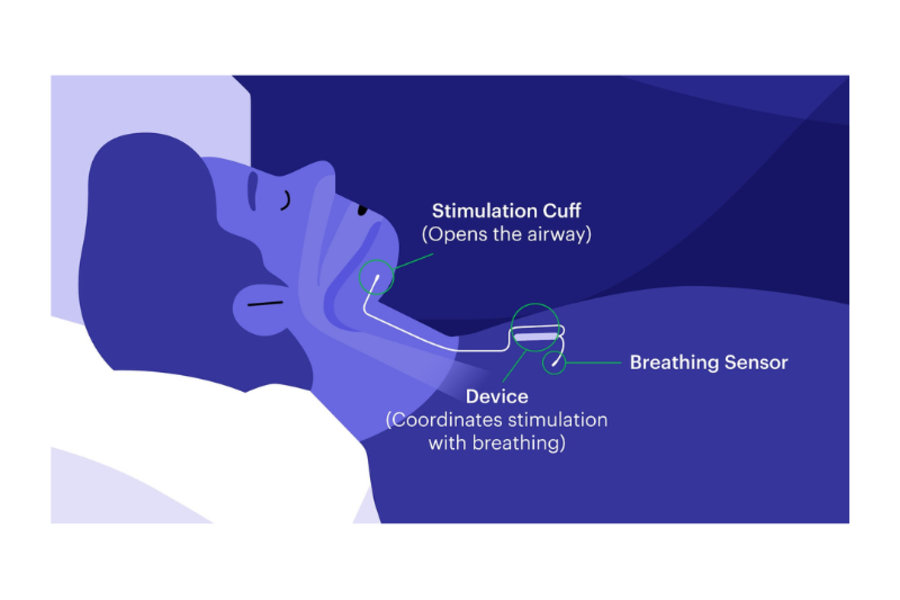
There is a new treatment option for people who suffer from obstructive sleep apnea and cannot use continuous positive airway pressure (CPAP) therapy.
A small device, similar to a pacemaker, is implanted under the skin of the chest using two small incisions during a same-day, outpatient procedure.
“The device works with your natural breathing process by delivering gentle stimulation to muscles around the tongue, which causes it to relax and allows the airway to stay open without disturbing your sleep,” said David Wise, MD, DDS, FACS, who specializes in oral and maxillofacial surgery at the CAMC Facial Surgery Center and has been trained to perform the procedure.
Patients use a small handheld remote to turn on the device before bed and turn it off when they wake up.
Obstructive sleep apnea affects 22 million Americans and occurs when the airway collapses during sleep and blocks the flow of oxygen to the brain. The brain senses a lack of oxygen and wakes the body up just long enough to take a breath, then falls back asleep. This cycle repeats throughout the night and causes poor, disruptive sleep.
Snoring is not only disruptive for a sleep partner, it also can lead to more serious health issues for the person suffering from sleep apnea like heart attack, arrhythmias and high blood pressure.
“If sleep apnea is improved, many of these comorbidities will improve,” Wise said.
After the device is implanted, the patient’s pulmonologist works with the patient to adjust the intensity of the stimulation and perform follow-up sleep studies to make sure the treatment is effective. The devices have a battery life of about 10 years and are MRI compatible.
“We’re very excited about providing this option to help patients with sleep apnea,” Wise said.
For more information, call (304) 388-3290 or visit camc.org/FacialSurgery.

